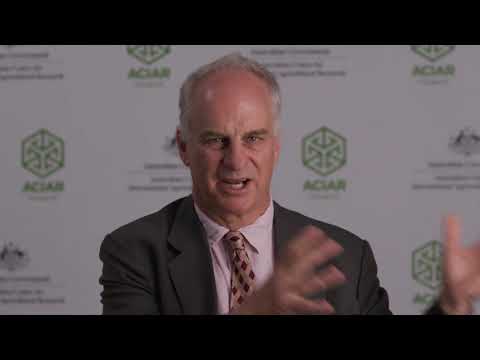Australia leads global research initiative to reduce agricultural greenhouse gases
Australia has become the lead country for an international research collaboration reducing agricultural greenhouse gas emissions.
Australia became Council Chair for the Global Research Alliance (GRA) on Agricultural Greenhouse Gases at the council’s 2021 annual meeting.
The GRA brings together leading scientists, researchers and policymakers from 64 member countries and 24 global partner organisations to share knowledge and increase cooperation in improving agricultural productivity while reducing greenhouse gas emissions.
The new Chair of the GRA Council and Australia’s representative, ACIAR CEO Professor Andrew Campbell, said that international research partnerships like the GRA are vital to overcoming the challenges facing global food systems.
‘Greenhouse gas emissions in the food sector continue to increase,’ said Professor Campbell. ‘If current trends continue, within our lifetime agriculture and the wider food system it underpins will become the largest emitting global sector.’
‘We need to produce enough healthy food and share it equitably, in ways that shift agriculture from being an emitting sector to being a carbon sink. The answers to these problems won’t come from one country; it needs to be a collective effort.’
‘The more we can learn from each other and share knowledge and innovations, the faster the world and our food systems can get to where they need to be,’ said Professor Campbell.
The GRA was initiated in 2009 by New Zealand, in partnership with Australia and the United States of America, to provide a framework to increase cooperation and investment in research activities to reduce agricultural greenhouse gas emissions.
Australia’s Ambassador for The Environment, Mr Jamie Isbister, welcomed Australia’s appointment as Chair of the GRA Council.
‘Australia has a proud history of research in agricultural emissions over many years. This has already helped to reduce greenhouse gases and increase productivity at the same time – practices that are now being used extensively in agricultural production systems, not just in Australia, but also in other parts of the world.’
‘Yet, there remain formidable technical challenges to reduce emissions in agriculture. As so many countries are facing these same challenges, it makes enormous sense to share know-how and expertise, to pool our resources, and to tackle these shared scientific challenges together.
‘The Australian Government is committed to supporting the GRA and to strengthen collaboration in global research on agricultural greenhouse gas emissions, and to promote sustainable agricultural production around the world.’
Australia assumed the position of GRA Council Chair from Indonesia, with the Director-General of the Indonesian Agency for Agricultural Research and Development, Dr Fadjry Djufry, passing over the title to Australia and wishing Professor Campbell well in his new role.
Professor Campbell said that priorities for Australia during its term as Chair will include getting Pacific island countries more involved in the alliance, looking for synergies between climate change adaptation research and efforts to reduce agricultural emissions, and improving linkages between the work of the GRA and the new research portfolio of the CGIAR—the Consultative Group on International Agriculture Research Centres.
Australia has been a supporter of and contributor to the GRA since 2009. As well as Chairing the GRA Council, Australia is also currently co-Chair of the Integrative Research Group, one of the four major research groups making up the alliance.
In this technical role, Australia is developing research collaborations to identify capacity gaps in developing countries for agricultural and land-use inventories to better understand options for meeting their own Nationally Determined Contributions under The Paris Agreement.



